Did you know that more than 93% of all Minnesota firefighters are non-career? Non-career firefighters are often busy serving their community at night – responding to a cardiac arrest, fatal fire or car wreck – only to have to work their “regular” job during the day while continuing to fulfill their roles as a parent, friend and spouse. There’s a mental health crisis sweeping through Minnesota’s entire fire service, but especially among volunteer firehouses.
Responding to a traumatic call can be especially difficult for volunteer firefighters in a small town, because they likely know someone involved in the incident. To make matters worse, many times these firefighters don’t go back to the firehouse and debrief with their team after a tough call. Instead, they return home to their families where they often refrain from discussing the difficult things they’ve witnessed on a call.
Firefighters often experience a “hero complex” – a feeling that if they go get help, then they’re not strong enough. Most firefighters can recall several traumatic events, but it’s the failure to talk about those memories that creates a dangerous feedback loop. Firefighters experience traumatic stress events on a weekly, sometimes daily basis, and this exposure accumulates over time and takes a significant toll on mental and emotional health. That’s why many end up suppressing their emotions in unhealthy ways.
This is unacceptable, and we need to do more to support our volunteer firefighters, our brave hometown heroes. That support starts with providing access to behavioral health services and an Employee Assistance Program (EAP). EAPs are often provided through employer health plans, but because 93% of Minnesota firefighters are non-career, many don’t have access because of their part-time status. A proactive mental health program, which includes access to resources like counseling services and peer support, is also crucial to supporting the emotional well-being of our non-career brothers and sisters.
First responders experience several barriers to seeking help – and the leading barrier is the stigma around mental health. Volunteer and career firefighters can learn more about the impact of emotional trauma and what can be done to help alleviate it in our emotional wellness deep-dive training. The two-hour class is free until June 2021 and helps firefighters de-stigmatize talking about mental health in their department and provides practical information around how to properly debrief after a difficult call and what resources are available for those who need help. Register here.
MnFIRE also provides a 24-hour peer support hotline for firefighters who are impacted by emotional trauma, as well as cancer and cardiac issues. If you’re a Minnesota firefighter who needs help, dial 888-784-6634 to speak with a trained peer supporter today.

